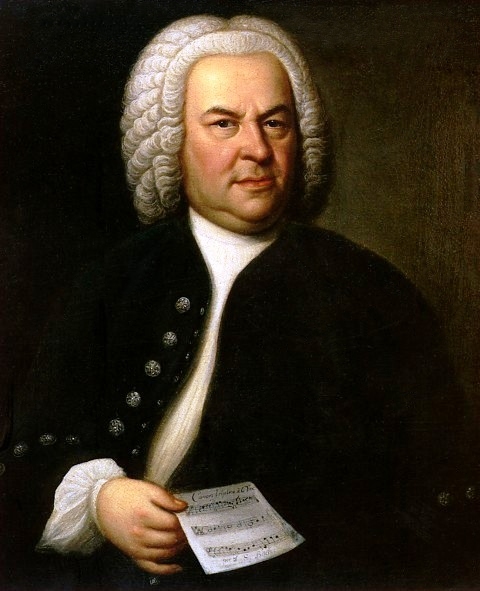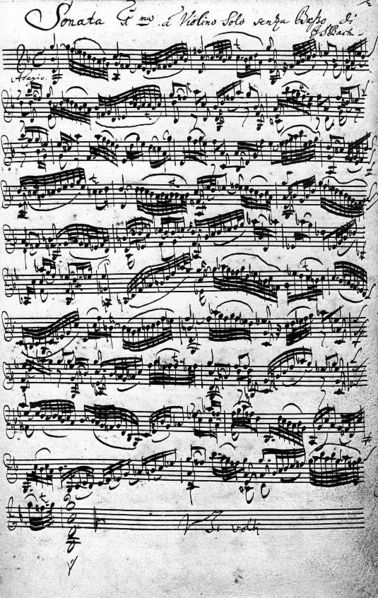Johann Sebastian Bach lived from March 1685 to July 1750 (65 years old). He was one of the most prolific composers in the world, and had 20 children with two wives, only nine of which survived. Of those nine children, four grew up to have strong musical careers of their own (Wilhelm Freidemann Bach, Carl Philipp Emanuel Bach, Johann Christoph Friedrich Bach , Johann Christian Bach).
Known mostly as a keyboardist, J. S. Bach also played the violin. His father, uncles, and cousins were all musicians, and he was constantly surrounded by music of many kinds. Under his own motivation, he would often get in trouble for using printed manuscript paper to practice copying music that belonged to his family members, since manuscript paper was expensive at the time.
Again, on his own, he went to school and met many children from titled families, and also made efforts to see other musicians perform. He even brought along music paper to transcribe the performances he heard. These connections at school would help shape his career later on.
Like most people, my first exposure to music by J. S. Bach was through radio, commercials, and video game soundtracks. If anyone else out there had one of the first Nintendo game consoles and played Slalom, you are familiar with one of Bach’s musettes.
I first studied his Violin Concerto in a minor in middle school, then his Cello Suites on the viola in high school, and our high school orchestra played his Toccata and Fugue in d minor (the same one that’s in Disney’s Fantasia). And every single one of those pieces has a decidedly different feel and attitude. Even among the Cello Suites, the first one is not the same as the last. And, of course, who hasn’t dreamed of playing the Bach Double Violin Concerto.
Even with today’s pop bands, you often feel that once you’ve heard one of their songs, you’ve heard them all. Not so with Bach. His self-imposed exposure to different experiences throughout his life, I think, helped contribute to his versatility as a composer.
J. S. Bach was known for many innovations of his time. Who really knows why his music has stood the test of time, while many of his family members’ pieces are almost never played. But the fact that there are so many pieces to choose from, and so many arrangements of them today is a testament to the importance of his work. While many musicians find his music overplayed, I often find that I am pleasantly surprised when I find a new recording of it to digest.
Many biographies and websites devoted to Bach can be found. I am including a short list of both here. In the end, you have to decide how deep you are willing to go, but I highly recommend getting to know him and his music.
Links:
- https://en.wikipedia.org/wiki/Johann_Sebastian_Bach
- https://www.biography.com/people/johann-sebastian-bach-9194289
- http://www.jsbach.org/
- https://en.wikipedia.org/wiki/Bach_family
Videos
Books
- Johann Sebastian Bach: The Learned Musician
- Bach: Music in the Castle of Heaven
- Evening in the Palace of Reason: Bach Meets Frederick the Great in the Age of Enlightenment


